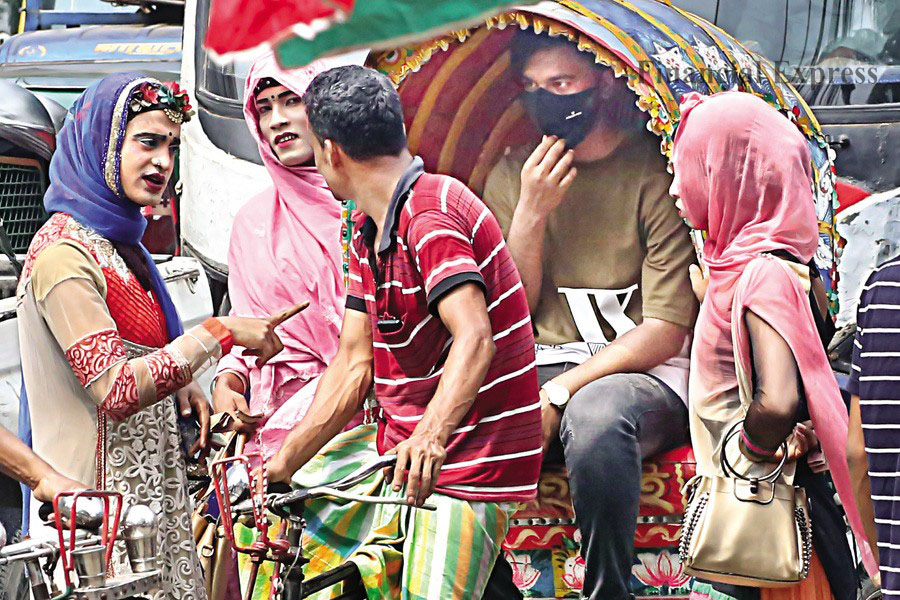In Bangladesh, it is common for individuals of the third gender to collect money from pedestrians in various public transportation modes, including buses, trains, and launches. This practice often results from systemic barriers that prevent them from pursuing mainstream professions. Social and economic inequality, a lack of educational opportunities, and hostile work environments significantly limit their ability to earn a living.
The third gender community in Bangladesh is socially marginalized, with an estimated population of approximately 12,000, though advocacy organizations suggest the number may exceed 15,000. Most members of this community are excluded from religious and social activities and face challenges & discrimination that hinders their educational opportunities. A Prothom Alo Report indicates that around 80% of transgender individuals in Bangladesh are deprived of education and healthcare, largely due to family and societal rejection.
Institutional qualifications are crucial for entering the job market in Bangladesh. However, many transgender individuals, who have faced educational barriers, struggle to meet these criteria. Those who manage to secure employment often encounter various forms of discrimination in the workplace. Colleagues frequently avoid engaging with them, and issues arise concerning access to gender-appropriate facilities, such as toilets.
In 2013, the Bangladeshi government introduced a policy aimed at supporting transgender individuals, but its implementation has been ineffective. Consequently, many members of the transgender community live in substandard conditions and rely on various forms of assistance for their livelihoods.
Double standards in workplace promotions further disadvantage third-gender workers compared to their male and female counterparts. A report by Samakal newspaper highlights that 75% of transgender youth are deprived of job opportunities, leading to increased stress and depression for many, ultimately forcing them out of mainstream employment.
Starting a business is equally challenging due to the lack of social acceptance, further contributing to the prevalence of street-based work among transgender individuals. According to a Welfare Association report, approximately 85% of transgender people engage in begging and sex work, primarily due to limited employment prospects. As noted by Mr. Habib, “Hijras have become accustomed to a culture that has been taken from humans to the moon as they are deprived of basic rights.”
While some organizations have initiated efforts to promote employment for transgender individuals in Bangladesh, these initiatives will prove ineffective in the long term unless social attitudes shift. Shah Ahsan Habib, a Professor of Sociology at Dhaka University, points out that despite parliamentary recognition, the quality of life for Hijras remains stagnant due to various legal and social barriers.
Experts argue that the government must foster an inclusive workplace environment and provide job-oriented training for transgender individuals. By ensuring access to training and job resources in a safe working environment, transgender people can aspire to lead more dignified and self-respecting lives.
Debjani Kurchi Kakon
HSC Batch-24, Science Group
Mirpur Cantonment Public School and College
Email: dekurchi1@gmail.com

Photo credit by The Financial Express
Posted inBlog Post



Very good https://is.gd/tpjNyL